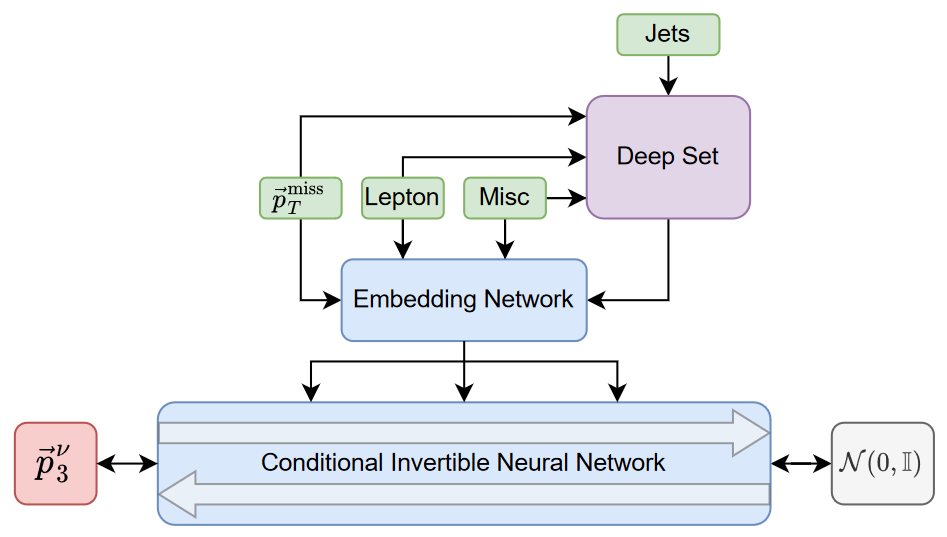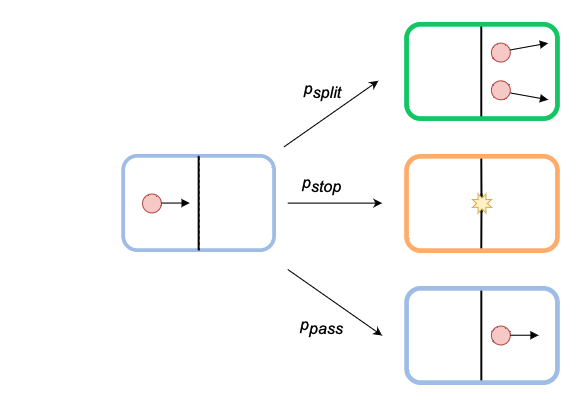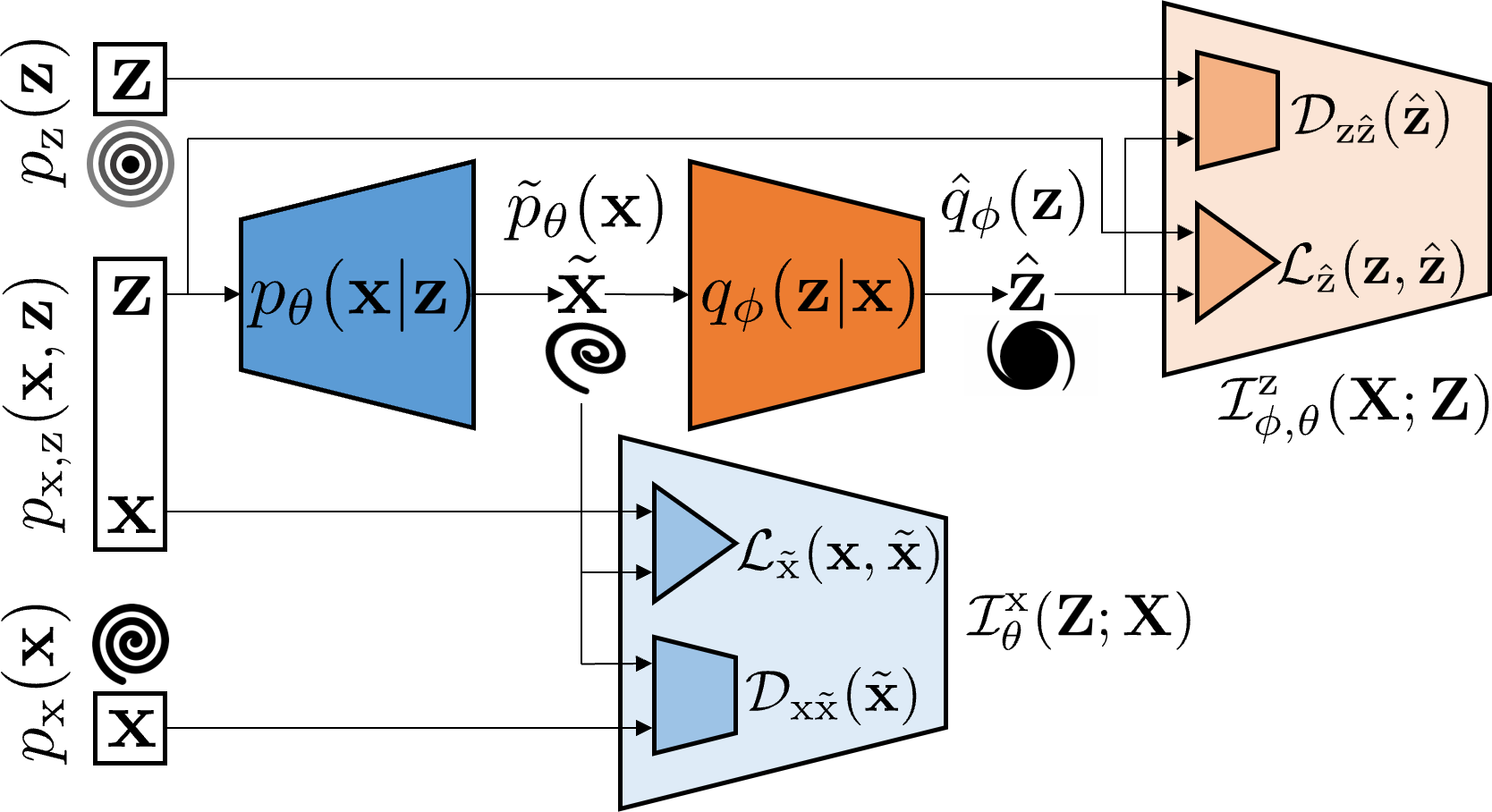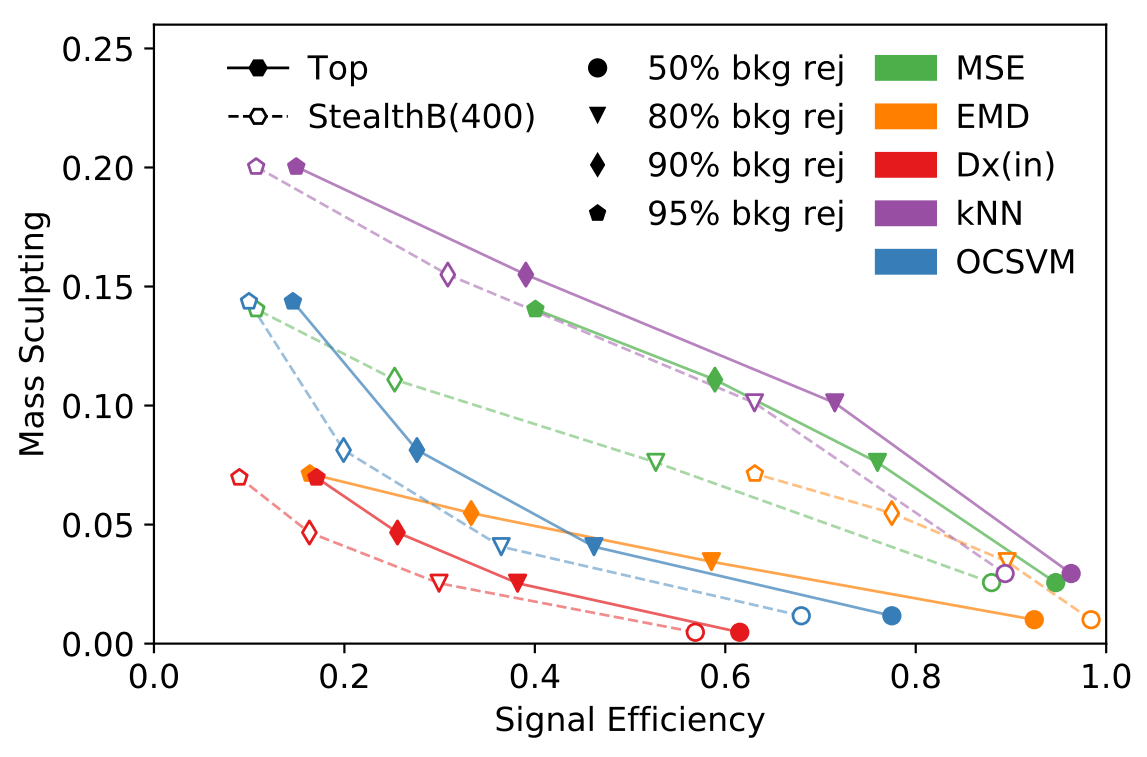Research Topics
ν-Flows
ν-Flows is a novel method for restricting the likelihood space of neutrino kinematics in high-energy collider experiments using conditional normalising flows and deep invertible neural networks. This method allows the recovery of the full neutrino momentum which is usually left as a free parameter and permits one to sample neutrino values under a learned conditional likelihood given event observations. In our paper we demonstrate the success of ν-Flows in a case study by applying it to simulated semileptonic ttbar events and show that it can lead to more accurate momentum reconstruction, particularly of the longitudinal coordinate. We also show that this has direct benefits in a downstream task of jet association, leading to an improvement of up to a factor of 1.41 compared to conventional methods.
More details in the arXiv preprint! — 01.07.2022
Flowification
The paper “Flowification: Everything is a Normalizing Flow” has been accepted to the NeurIPS 2022 conference. This paper shows that multi-layer perceptrons and convolutional networks can be trained as normalizing flows to maximise the likelihood of data directly. This work raises questions about the kinds of functions that make good density estimators.
More details in the arXiv preprint! — 30.05.2022
CURTAINs
New method published: with CURTAINs we introduce a new method using optimal transport and invertible neural networks to extend the sensitivity of the bump hunt! By transforming data from sidebands into the signal region with a learned transport function we can preserve all correlations and the underlying PDF of our background template, opening up the door for more sensitivity in the hunt for new physics with anomaly detection in sliding window fits.
More details in the arXiv preprint! — 17.03.2022
SUPA
SUPA, the SUrrogate PArticle propagation simulator, is an algorithm and software package for generating data by simulating simplified particle propagation, scattering and shower development in matter. The generation is extremely fast and easy to use compared to detailed simulation frameworks like Geant4, but still exhibits the key characteristics and challenges of the detailed simulation. The proposed simulator generates thousands of particle showers per second on a desktop machine, a speed-up of up to 6 orders of magnitudes over Geant4, and stores detailed geometric information about the shower propagation. SUPA provides much greater flexibility for setting initial conditions and defining multiple benchmarks for the development of models. Moreover, interpreting particle showers as point clouds creates a connection to geometric machine learning and provides challenging and fundamentally new datasets for the field.
More details in the arXiv preprint! — 10.02.2022
Turbo-Sim
Turbo-Sim is a generalised autoencoder framework derived from principles of information theory. By maximising the mutual information between the input and the output of both the encoder and the decoder, we are able to rediscover the loss terms usually found in adversarial autoencoders and generative adversarial networks, as well as various more sophisticated related models. We apply Turbo-Sim to a collider physics generation problem: the transformation of the properties of several particles from a theory space, right after the collision, to an observation space, right after the detection in an experiment.
More details in the arXiv preprint! — 20.12.2021
InfoSCC-GAN
In this "Information-theoretic stochastic contrastive conditional GAN: InfoSCC-GAN", we present a stochastic contrastive conditional generative adversarial network (InfoSCC-GAN) with an explorable latent space. We propose a novel training method, based on generator regularization using external or internal attributes every n-th iteration, using a pretrained contrastive encoder and a pretrained classifier. The proposed InfoSCC-GAN is derived based on an information-theoretic formulation of mutual information maximization between input data and latent space representation as well as between latent space and generated data.
More details in the arXiv preprint! — 17.12.2021
Generation of data on discontinuous manifolds
Text here
More details in the arXiv preprint! — 17.12.2021
Funnels
Normalizing flows are typically seen as using dimension preserving operations, which restricts their flexibility. The funnel approach offers a probabilistic interpretation of slicing operations and demonstrates that this formalism can help to develop new operations as well as alleviate some pathologies that commonly appear in flows.
More details in the arXiv preprint! — 15.12.2021
The Mass-ive Issue
In the hunt for new and unobserved phenomena in particle physics, attention has turned in recent years to using advanced machine learning techniques for model independent searches. In this paper we highlight the main challenge of applying anomaly detection to jet physics, where preserving an unbiased estimator of the jet mass remains a critical piece of any model independent search. Using Vari- ational Autoencoders and multiple industry-standard anomaly detection metrics, we demonstrate the unavoidable nature of this problem.
More details in the conference proceeding! — ML4PS @ NeurIPS 2020











